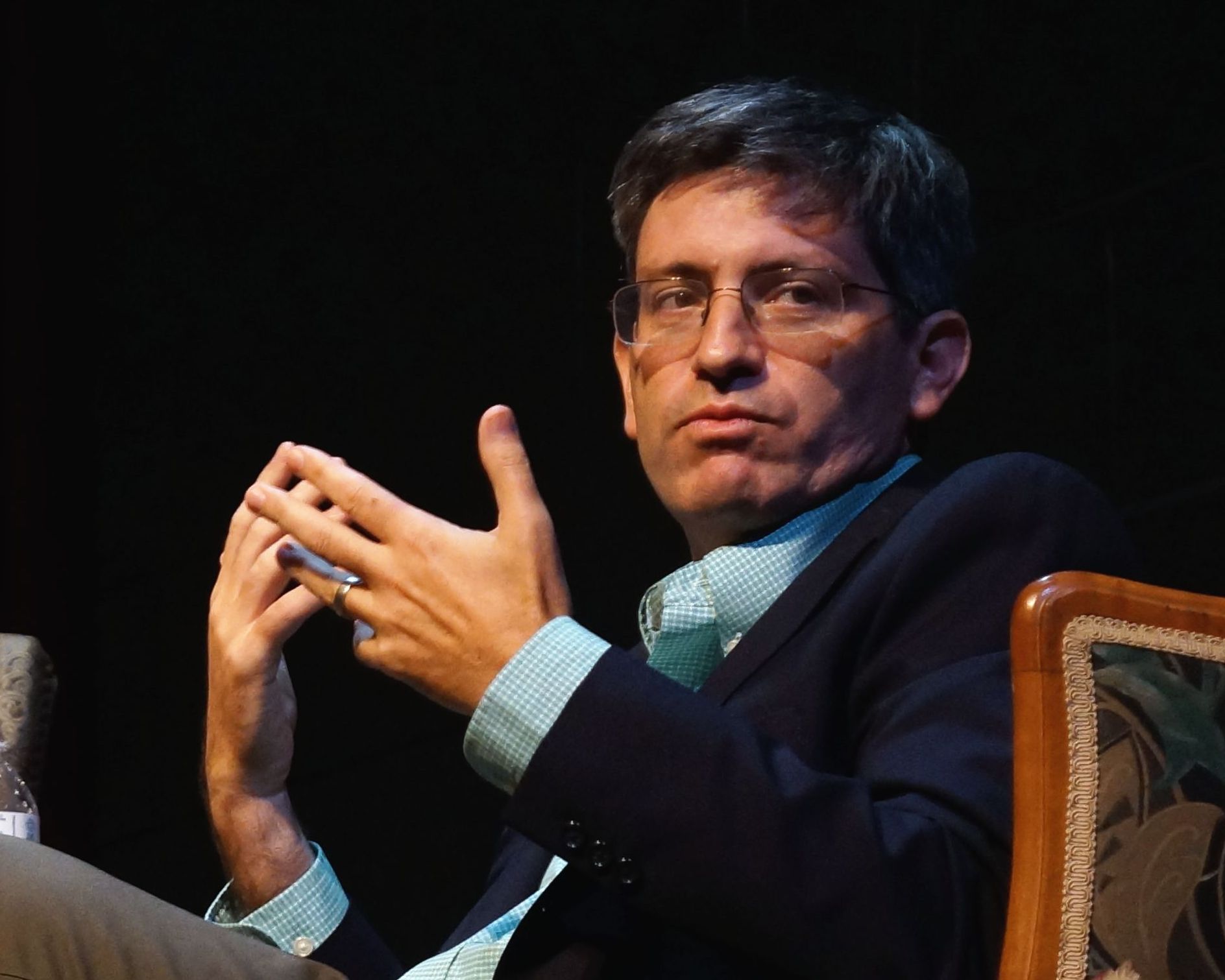Really, all living humans are closely related to each other. If you take different people's DNA and compare it to each other, there are only tiny fractions of difference.

"Carl Zimmer" (born 1966) is a popular science writer and blogger, especially regarding the study of evolution and parasites. He has written several books and contributes science essays to publications such as The New York Times, Discover (magazine)/Discover, and National Geographic (magazine)/National Geographic." "He is a fellow at Yale University's Morse College.
More Carl Zimmer on Wikipedia.I wish I took more scientific classes, because I've always been interested in science. Most of what I have learned I've learned on the job. It's a really neat opportunity to learn by calling up scientists, some of which are world-renowned, ask them questions.
Evolution is a large political controversy as to what should be taught in the schools. But there is no scientific controversy that we evolved when we talk about evidence from fossils and DNA.
I'm really interested in the history of life in general. How life began to how birds evolved to what our ancestors looked like.
Our species evolved in Africa 200,000 years ago. We didn't move out until 100,000 years ago, and there were several waves. The oldest evidence of species outside of Africa was in Europe about 40,000 years ago, and in Australia 50,000 years ago.
I read a lot of scientific papers on the history of evolution and spent time talking to scientists. I started to write it in the spring of 2004 and wanted the book to look at the biggest questions people have about human origins, such as what were the first hominids and how did our ancestors evolve to walk upright?
I started fact checking and copy-editing, basic stuff. Then I started writing books and articles, and left in 1999. I've been working freelance ever since and moved here three years ago.
I have learned so much about where we came from. It has also allowed me to appreciate the new science that has come out on human origins.
The people that domesticated cattle and started drinking milk learned how to digest it as adults. Normally, creatures after they grow up cannot digest milk easily. For instance, a kitten will nurse and digest milk, but then will grow up, stop drinking it, and start catching mice.
Copyright © 2024 Electric Goat Media. All Rights Reserved.